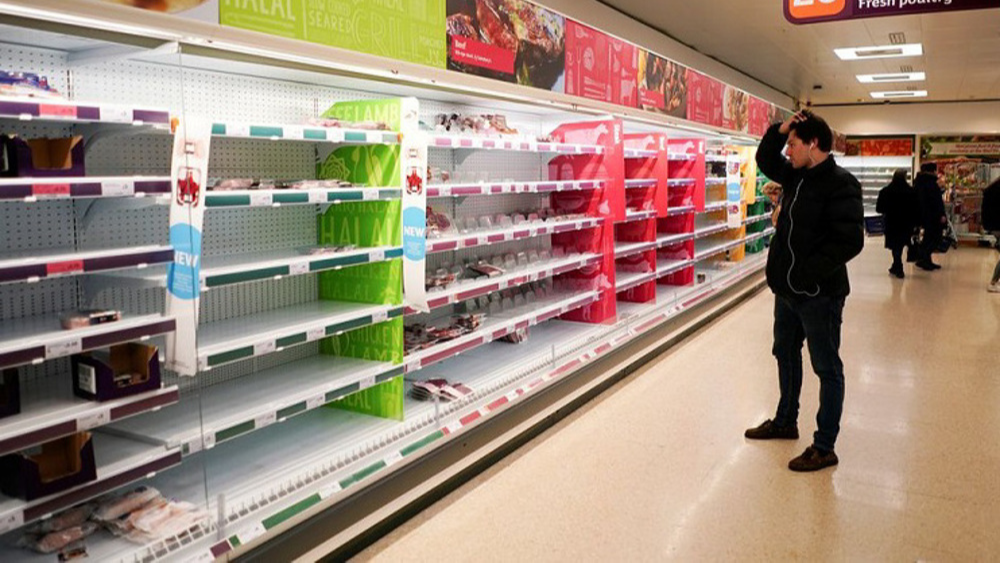
A man stands next to shelves empty of fresh meat in a supermarket in London (Photo by Reuters)
London, February 1 (RHC)-- About one in five British adults turned to eating food past its use-by date or consuming smaller portions this winter, the executive office of the UK Statistics Authority has revealed, as the cost-of-living crisis weighs heavily on people’s lives.
According to a damning report published by the Office for National Statistics (ONS) in London, 18 percent of adults across the UK either used out-of-date food or ate smaller portions than usual due to the rising costs of groceries. The rates are even higher among those with depression, diabetes, or dependent children.
The ONS figures, which span from 22 November until 18 December and are based on a survey of more than 4,700 people, also show that 70 percent of those who ran out of food in the past two weeks also reported struggling to keep warm.
Overall, about a quarter of adults reported they were occasionally, hardly ever, or never, able to keep comfortably warm. Moreover, around one in seven adults was reported to be running out of food before being able to buy more.
The European Food Information Council has warned that food should not be eaten past its use-by date. Jason Webb, managing director at Electronic Temperature Instruments, which manufactures digital thermometers for cooking, said: “It's important to remember that a 'use-by' date is the safety marker and is there to protect us.”
“Food with a 'use-by' date should never be eaten after that date, so we should try to use or freeze these items before they expire,” he stressed.
Meanwhile, the damning report also looked at waiting times of patients for treatment on the National Health Service (NHS) and the negative impact this was having on people’s already miserable lives. Around one in five adults reported they were waiting for a hospital appointment, test, or medical treatment, while some 48 percent of people with depressive symptoms and 37 percent of those with a disability said the wait for NHS access was having a strong negative impact on their lives. Furthermore, almost a quarter of adults, who needed to see a GP, reported not being able to get an appointment.
Energy and food prices have experienced a sharp increase in recent months, as the UK is grappling with its decades-high inflation. The increase in prices, along with low wages, has prompted the labor forces in different industries to stage strikes across the country, paralyzing the country’s vital infrastructures, including the health system.

